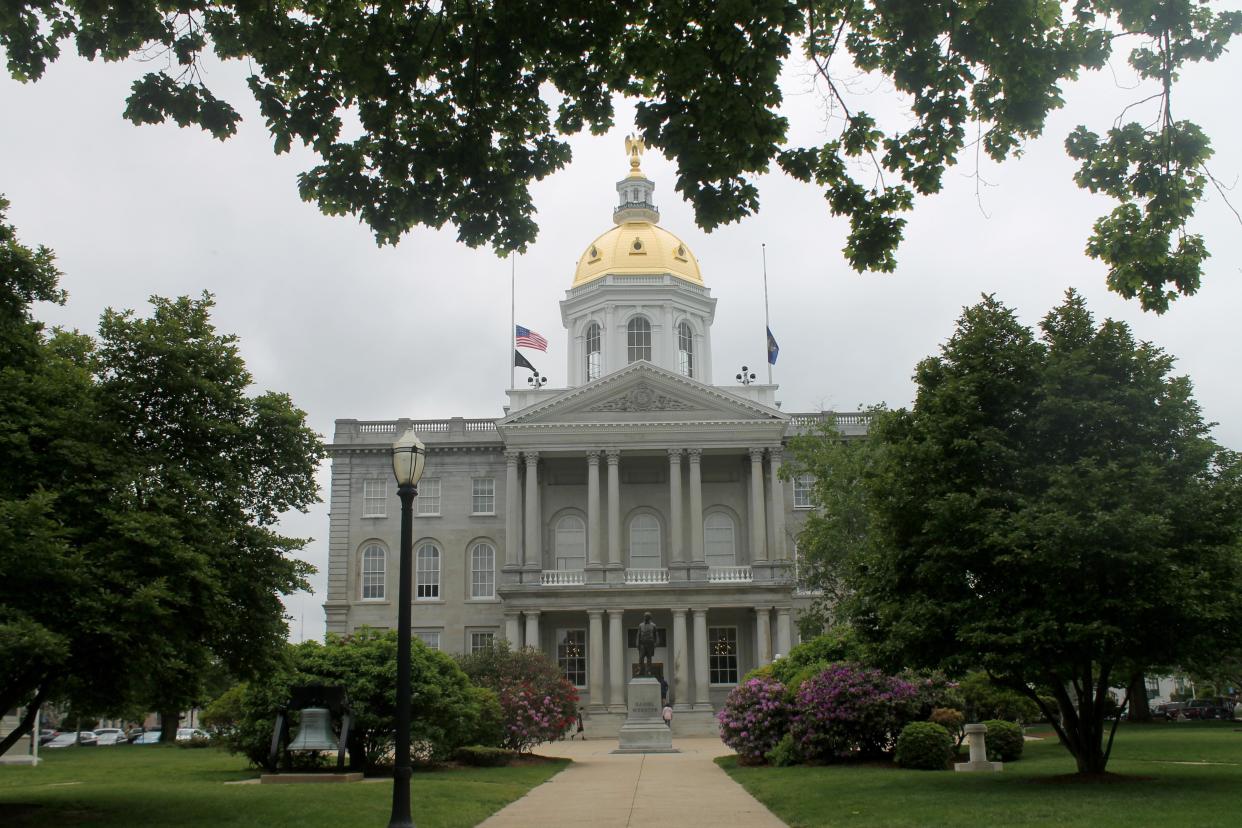New Hampshire House, Senate 'veto day' set for Sept. 15; fuel assistance also on calendar

- Oops!Something went wrong.Please try again later.
New Hampshire lawmakers will return to the State House Sept. 15 to decide whether to override Gov. Chris Sununu’s eight vetoes – just two days after the state’s Sept. 13 primaries.
House Speaker Sherman Packard announced the date in a message in the New Hampshire House’s weekly calendar.
The special session, known as “veto day,” is traditionally held in September every year. This year’s session carries more significance than usual: Lawmakers are planning to pass last-minute legislation to distribute $100 fuel assistance payments to New Hampshire residents, a $60 million state-funded proposal put forward by Gov. Chris Sununu in June.
The timing of the veto day means that some senators and representatives could participate despite losing their primaries two days before.
Sununu vetoed seven House bills and one Senate bill this year, including two redistricting bills, House Bill 52 and Senate Bill 200, to redraw the lines around the state’s two congressional seats. House and Senate Republicans attempted to rearrange the districts to make one lean heavily toward Republican voters and another lean heavily toward Democratic voters; Sununu rejected that approach, arguing both should stay competitive. The New Hampshire Supreme Court has since redrawn the districts itself.
Among the other bills Sununu vetoed are House Bill 275, which would limit the governor’s powers over declaring a state of emergency; House Bill 319, which would require public college and university students to pass a civics test; House Bill 1022, which would permit pharmacists to distribute ivermectin using a standing order; House Bill 1131, which would override schools’ ability to pass mask mandates; House Bill 1454, which would require stricter measures to separate landfills from bodies of water; and House Bill 1625, which would repeal the “buffer zone” prohibition that prevents protesters from standing within a certain distance of reproductive health facilities.
In order for a veto to be overridden, the bill must return to the chamber it originated in and lawmakers in that chamber must vote to override the veto with a two-thirds majority. If the vote is less than two-thirds, the veto is sustained. If the veto is overridden by that chamber, it moves to the opposite chamber, which must also override the veto by two-thirds.
Veto overrides, which require bipartisan agreement that the governor’s decision was wrong, are not common. But advocates for the stricter landfill siting bill, HB 1454, say they may have a shot. That bill passed the Senate 16-8, a veto-proof majority, and passed the House on a voice vote.
In order to approve the fuel assistance legislation, which is being introduced outside of the spring legislative calendar, lawmakers in both chambers will need to suspend the rules with a two-thirds vote. At that point, a bill may be introduced and must pass with a majority in both chambers.
A spokeswoman for the House speaker’s office said Friday that the final version of the fuel assistance bill has not been drafted yet. The spokeswoman, Jennifer Tramp, said that leadership would be gathering in the coming weeks to finalize the bill.
This story was originally published in New Hampshire Bulletin.
This article originally appeared on Portsmouth Herald: New Hampshire House, Senate 'veto day' set for Sept. 15

